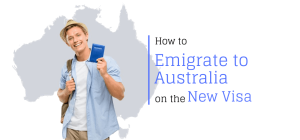In the realm of global commerce and cross-border collaboration, the B-1 visa stands as a crucial instrument, facilitating temporary business visits to the United States. Business professionals seeking to engage in a spectrum of activities, from attending meetings to negotiating contracts, often rely on the B-1 visa to conduct their affairs efficiently. This article delves into the intricacies of the B-1 visa for temporary business visitors, exploring its eligibility criteria, application process, permissible activities, and its role in fostering international trade relationships.
The B-1 Visa for Temporary Business Visitors
The B-1 Visa Temporary Business Visitor category is designed to cater to a diverse range of business activities that do not involve direct employment within the United States. It provides a pathway for individuals to enter the country temporarily and participate in activities that promote business interaction, cooperation, and development. Whether for negotiations, consultations, or attending conferences, the B-1 visa facilitates essential cross-border engagements.
Eligibility Criteria
To qualify for a B-1 visa, prospective applicants must satisfy specific eligibility requirements outlined by the U.S. Department of State. Central to the criteria is demonstrating “non-immigrant intent,” indicating that the applicant intends to remain in the U.S. temporarily and will return to their home country upon the expiration of their visa. Additionally, applicants must provide evidence of sufficient funds to cover their travel expenses during their stay and illustrate their ties to their home country, such as family, employment, or property.
Application Process
The journey to obtaining a B-1 visa initiates with the completion of the Online Nonimmigrant Visa Application, Form DS-160. This comprehensive form collects biographical information, travel details, and the purpose of the visit. After submitting the DS-160 form, applicants must pay the non-refundable visa application fee and schedule an appointment at a U.S. embassy or consulate for a face-to-face interview.
The interview is a pivotal aspect of the application process. During the interview, a consular officer evaluates the applicant’s eligibility and purpose for visiting the United States. The applicant’s ability to clearly articulate their intended business activities and demonstrate their commitment to returning to their home country profoundly influences the visa decision.
Permissible Activities
The B-1 visa permits a diverse range of business-related activities, including but not limited to:
- Attending Business Meetings and Conferences: Business visitors can participate in meetings, seminars, conferences, and trade shows to exchange ideas, explore opportunities, and foster professional relationships.
- Negotiating Contracts: Prospective investors, entrepreneurs, and businesspeople can engage in negotiations related to contracts, transactions, and agreements.
- Consultations with Business Associates: Individuals can collaborate with U.S. business counterparts, clients, or associates to discuss business matters, strategies, and collaborations.
- Market Research: Business visitors can conduct market research to gather insights about consumer behavior, industry trends, and competitive landscapes.
- Training and Professional Development: Participation in short-term training programs, workshops, or seminars to enhance professional skills is also within the scope of the B-1 visa.
- Temporary Domestic Employment: In some instances, individuals may be eligible for temporary employment within the United States for specific projects or assignments.
Role in Fostering International Trade Relationships
The B-1 visa plays a pivotal role in nurturing international trade relationships and driving economic growth. By facilitating temporary business visits, the visa enables professionals to explore new markets, expand their network of contacts, and establish mutually beneficial partnerships. The exchange of knowledge, expertise, and best practices during these interactions enhances global economic integration and paves the way for collaborative initiatives.
Through business engagements facilitated by the B-1 visa, companies can tap into new markets, harness innovative technologies, and capitalize on emerging trends. This not only benefits the individual businesses but also contributes to the overall economic development of both the United States and the global community.
Challenges and Recommendations
While the B-1 visa serves as a vital conduit for international business, certain challenges exist within its application process. Lengthy processing times and inconsistent adjudication standards have led to uncertainty for applicants, potentially affecting their business plans. To address these concerns, implementing measures to streamline processing, enhance transparency, and standardize interview procedures could enhance the overall experience for B-1 visa applicants.
Furthermore, it is crucial for applicants to thoroughly understand the limitations of the B-1 visa. Engaging in unauthorized employment or exceeding the stipulated duration of stay can lead to adverse consequences, including visa revocation and future inadmissibility to the United States.
Conclusion
In the dynamic landscape of international business, the B-1 visa for temporary business visitors stands as a bridge connecting professionals and fostering cross-border collaborations. It empowers individuals to engage in a diverse array of business activities, contributing to economic growth, knowledge exchange, and the enrichment of global trade relationships. As the world becomes increasingly interconnected, the B-1 visa remains a crucial tool in navigating the complexities of international commerce.






